The Complete Guide to Smart Locks: Elevating Your Home Security
Unlocking the Benefits of Smart Locks
In today’s digital age, enhancing home security has taken a leap forward with the advent of smart locks. These innovative devices offer not only convenience but also a robust layer of security, making keys a thing of the past. Homeowners now have the ability to control access to their abodes with just a few taps on a smartphone.
Key Features of Top Smart Lock Models
When it comes to selecting a smart lock, several key features stand out. First, ease of installation is paramount, as most users prefer devices that can seamlessly integrate into their existing door setups without the need for extensive modifications. Secondly, compatibility with other smart home systems ensures a cohesive and interconnected home security network. Lastly, the ability to generate temporary access codes is a boon for those who often have visitors or service providers coming to their home.
Enhancing Security with Advanced Encryption
One of the primary concerns when shifting to smart locks is the security of digital keys. Leading manufacturers address this by employing advanced encryption techniques, ensuring that every communication between your smartphone and the smart lock is securely encrypted. This measure significantly reduces the risk of unauthorized access, giving homeowners peace of mind.
Smart Locks: A Gateway to a Smart Home
Smart locks act not only as a standalone security feature but also as an integral component of a comprehensive smart home ecosystem. With compatibility across various platforms, these devices can communicate with other smart home gadgets, enabling features like automatic lighting when the door is unlocked. This integration enhances both convenience and security, propelling your home into the future.
Choosing the Right Smart Lock for Your Home
Navigating the plethora of smart lock options can be daunting. However, focusing on key aspects such as battery life, ease of use, and integration capabilities can guide homeowners to the perfect choice for their needs. Additionally, considering the design and aesthetic appeal of the smart lock ensures that it complements your home’s style.
Smart Lock Installation Tips
For those ready to make the switch, installation doesn’t have to be a hurdle. Many smart locks come with user-friendly instructions and can be installed with basic tools. For added assurance, some brands offer professional installation services, ensuring that your smart lock is set up correctly for optimal performance.
Conclusion: A Smart Step Towards Enhanced Security
The transition to smart locks represents a smart, secure step forward in home security. With their advanced features, ease of use, and integration with broader smart home systems, these devices offer a convenient and efficient way to safeguard your home. As technology continues to evolve, the capabilities of smart locks will only expand, making them an indispensable component of modern home security solutions.
Embracing smart locks is not just about adopting new technology; it's about enhancing the security and convenience of your home in a smart, seamless manner. With this guide, homeowners are equipped to make informed decisions, ensuring their abode is both safe and smart.
FAQs
Q. What are smart locks and how do they work?
Smart locks are electronic locking mechanisms that use Wi-Fi or Bluetooth to connect with your smartphone, tablet, or smart home system, allowing you to lock and unlock doors remotely. They work by receiving digital keys or commands through a secure app, enabling control over who can access your home.
Q. Can smart locks be hacked?
Like any technology connected to the internet, smart locks are susceptible to hacking. However, reputable brands employ advanced encryption and security protocols to minimize this risk, making it difficult for unauthorized users to gain access.
Q, Do smart locks require an internet connection to function?
While an internet connection is necessary for remote access and integration with smart home systems, most smart locks can still operate with Bluetooth connectivity, allowing you to lock and unlock your door even when offline.
Q. Can I install a smart lock on any door?
Smart locks are designed to fit most standard doors, but it's important to check the specifications of the lock and compare them with your door's configuration. Some smart locks may require additional modifications or adapters.
Q. How do smart locks get power?
Smart locks are typically powered by batteries. The type and number of batteries required can vary, but many models use AA or AAA batteries and offer a battery life ranging from several months to a year, depending on usage.
Q. What happens if the smart lock’s batteries die?
Most smart locks are designed to alert you well in advance when the batteries are running low. If the batteries do die, many smart locks have a physical key option or an external battery terminal that allows temporary power to unlock the door.
Q. Can I integrate a smart lock with my existing smart home system?
Many smart locks are compatible with popular smart home platforms like Apple HomeKit, Amazon Alexa, and Google Assistant. Check the lock’s compatibility before purchasing to ensure it fits seamlessly into your smart home ecosystem.
Q. How can I share access to my home with visitors using a smart lock?
Smart locks allow you to create temporary or permanent digital keys for guests. You can send these digital keys via the smart lock’s app, enabling visitors to unlock the door using their smartphone during the designated times.
Q. Are smart locks difficult to install?
Smart locks are generally designed for easy installation, often requiring just a screwdriver and following the instructions provided. Some users may opt for professional installation to ensure the lock is set up correctly.
Q. What should I do if my smart lock isn’t working properly?
First, check the lock’s battery level and ensure it’s connected to your smart home network. If issues persist, consult the user manual for troubleshooting tips or contact the manufacturer's customer support for assistance.
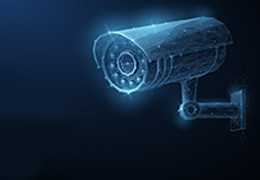 Beyond Convenience: How Smart Devices Can Enhance Home Security03/28/2024Posted in: GuideRead more
Beyond Convenience: How Smart Devices Can Enhance Home Security03/28/2024Posted in: GuideRead more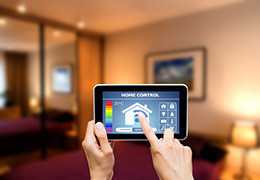 The Ultimate Smart Home Starter Kit: Must-Haves for Beginners (Affordability Edition)03/28/2024Posted in: GuideRead more
The Ultimate Smart Home Starter Kit: Must-Haves for Beginners (Affordability Edition)03/28/2024Posted in: GuideRead more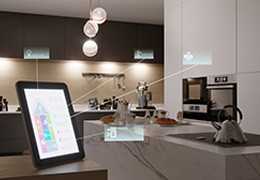 Illuminate Your Life: Home Lighting Automation Explained03/28/2024Posted in: Smart HomeRead more
Illuminate Your Life: Home Lighting Automation Explained03/28/2024Posted in: Smart HomeRead more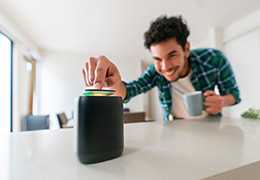
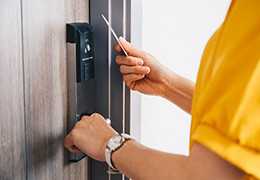 Enhance Your Home Security with a Smart Lock: The Ultimate Guide03/28/2024Posted in: Smart HomeRead more
Enhance Your Home Security with a Smart Lock: The Ultimate Guide03/28/2024Posted in: Smart HomeRead more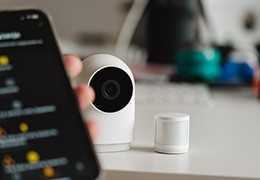
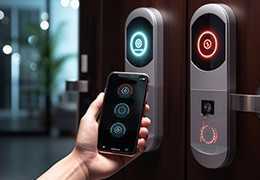 The Ultimate Guide to Home Automation Hubs02/12/2024Posted in: Smart HomeHome automation...Read more
The Ultimate Guide to Home Automation Hubs02/12/2024Posted in: Smart HomeHome automation...Read more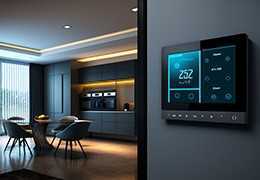 Enhance Your Security: Smart Home Solutions02/12/2024Posted in: Smart HomeIn today's...Read more
Enhance Your Security: Smart Home Solutions02/12/2024Posted in: Smart HomeIn today's...Read more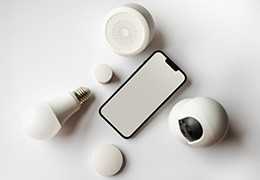 Smart Light Compatibility: Ensuring Seamless Integration02/12/2024Posted in: Smart LightingIn the realm of...Read more
Smart Light Compatibility: Ensuring Seamless Integration02/12/2024Posted in: Smart LightingIn the realm of...Read more
 Beyond Convenience: How Smart Devices Can Enhance Home Security03/28/2024Posted in: GuideSmart home...Read more
Beyond Convenience: How Smart Devices Can Enhance Home Security03/28/2024Posted in: GuideSmart home...Read more The Ultimate Smart Home Starter Kit: Must-Haves for Beginners (Affordability Edition)03/28/2024Posted in: GuideTurn your home...Read more
The Ultimate Smart Home Starter Kit: Must-Haves for Beginners (Affordability Edition)03/28/2024Posted in: GuideTurn your home...Read more Illuminate Your Life: Home Lighting Automation Explained03/28/2024Posted in: Smart HomeThis guide...Read more
Illuminate Your Life: Home Lighting Automation Explained03/28/2024Posted in: Smart HomeThis guide...Read more
 Enhance Your Home Security with a Smart Lock: The Ultimate Guide03/28/2024Posted in: Smart HomeThis guide...Read more
Enhance Your Home Security with a Smart Lock: The Ultimate Guide03/28/2024Posted in: Smart HomeThis guide...Read more





Leave a comment